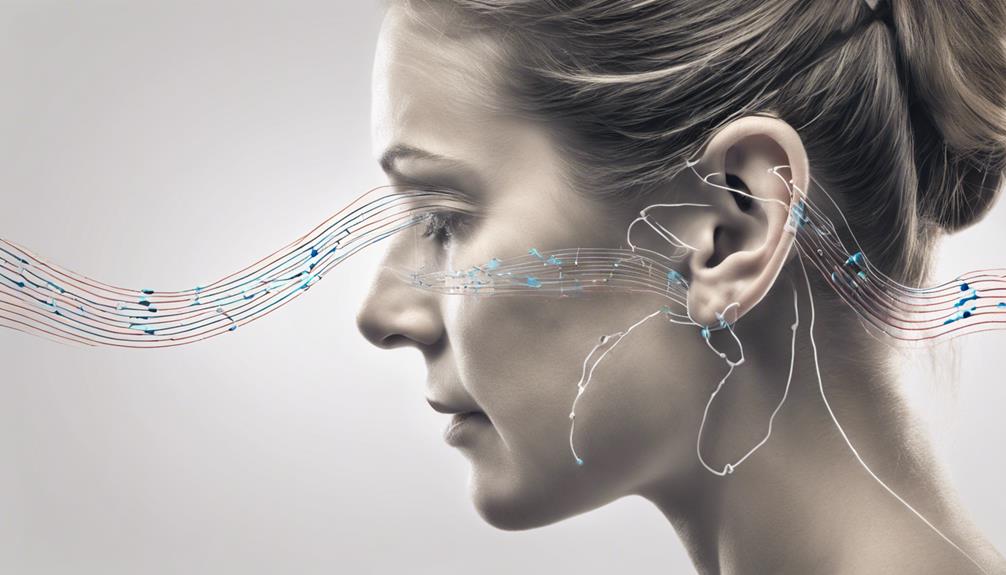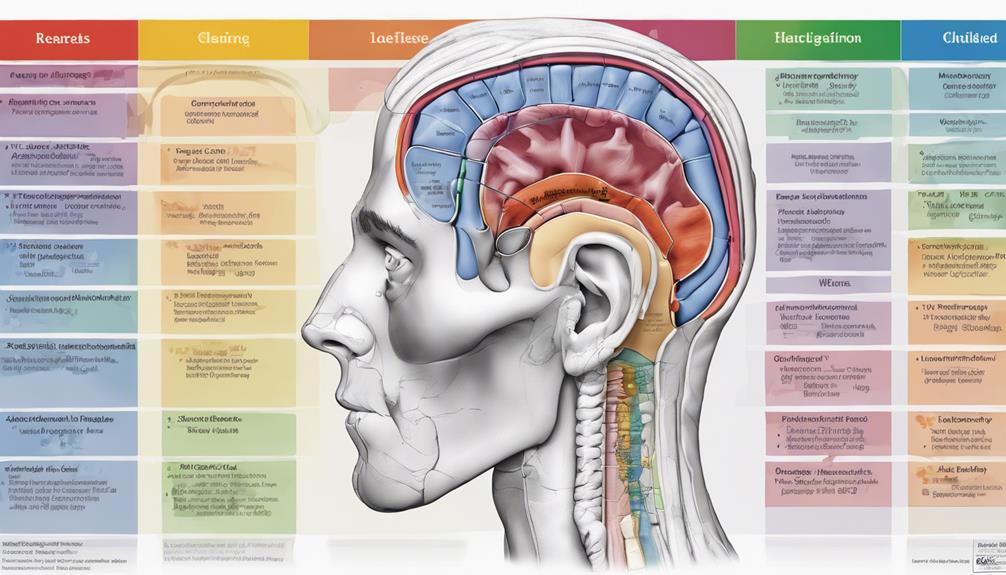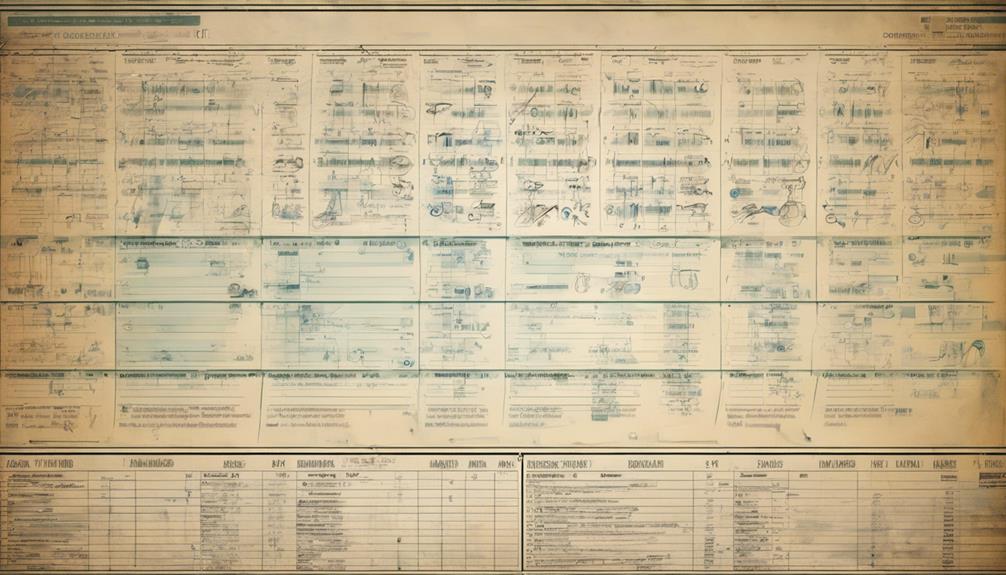When talking about hearing loss in the left ear, it is crucial to understand the significance of using the correct ICD code. Using specific codes for conditions that impact the left ear provides a standardized approach for medical records and billing.
But have you ever wondered why left hearing loss specifically necessitates an ICD code? Let's explore the rationale behind this coding practice and its impact on patient care and outcomes.
Key Takeaways
- Accurate diagnosis and targeted treatment planning.
- Tailored treatment strategies for efficient care.
- Ensures insurance coverage and reimbursement validation.
- Supports research, epidemiological analysis, and comprehensive patient care.
Importance of ICD Coding for Left Hearing Loss
Understanding the significance of ICD coding for left hearing loss is crucial in ensuring accurate diagnosis and appropriate management of patients with this specific auditory impairment. Proper documentation through ICD coding allows healthcare professionals to pinpoint the exact ear affected, facilitating targeted treatment planning and follow-up care for individuals experiencing left-sided hearing issues.
Moreover, the use of specific ICD codes for left hearing loss enables the tracking and monitoring of the prevalence of this condition within the population, aiding in epidemiological analysis and healthcare resource allocation.
In addition, detailed ICD coding for left ear conditions is often necessary for insurance reimbursement purposes, as it establishes the medical necessity for interventions aimed at addressing hearing impairments in the left ear. Furthermore, these codes play a vital role in supporting research studies focused on left hearing loss, contributing to the advancement of audiological knowledge and enhancing patient outcomes through evidence-based practices.
Proper utilization of ICD codes for left hearing loss is essential for ensuring accurate documentation, improving treatment outcomes, and maximizing healthcare efficiency.
Rationale for ICD Code in Audiology
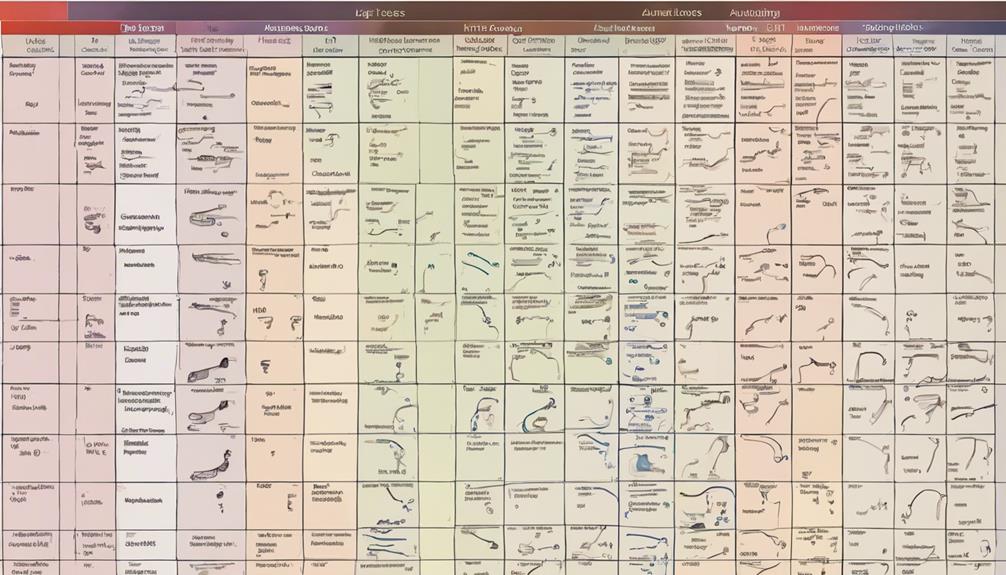
Proper utilization of ICD codes in audiology is essential for accurately documenting and communicating specific details crucial for diagnosis and treatment planning, including the laterality of hearing loss. When it comes to audiology services, the rationale behind using ICD codes for left ear conditions is multifaceted:
- Identification: Differentiating between left and right ear codes aids in pinpointing the exact location and nature of the hearing impairment.
- Treatment Planning: Specific ICD codes for the left ear assist in tailoring treatment strategies to address the unique needs of the patient's affected ear.
- Insurance Coverage: Accurate ICD coding for left hearing loss is fundamental for ensuring proper reimbursement and coverage by insurance providers, facilitating access to essential audiology services.
In the realm of health, particularly concerning sensorineural hearing loss in the left ear, the detailed information conveyed through ICD codes plays a pivotal role in delivering comprehensive care and support to individuals with auditory challenges.
Implications of ICD Coding in Healthcare

In the realm of modern healthcare, the utilization of precise ICD coding holds significant implications for comprehensive patient care and efficient administrative processes. When it comes to conditions like left hearing loss, accurate ICD coding is crucial for medical documentation, billing, and insurance reimbursement.
Specific ICD codes for left hearing loss not only aid in tracking the prevalence of this condition but also ensure that healthcare providers can tailor appropriate treatment plans and interventions for affected individuals. Furthermore, detailed ICD coding, including specifying the side of hearing loss, facilitates seamless data sharing among healthcare professionals, enhancing patient care coordination.
Benefits of ICD Code Accuracy
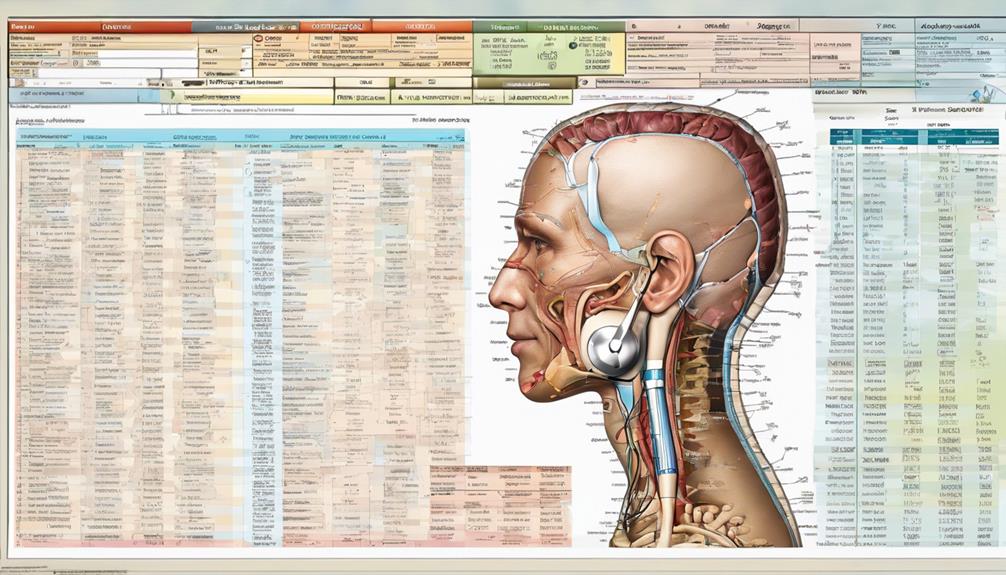
Transitioning from the implications of ICD coding in healthcare to the benefits of code accuracy, precise ICD coding for left hearing loss plays a pivotal role in ensuring comprehensive patient care and efficient administrative processes. When considering the accurate representation of sensorineural left ear hearing loss through ICD-10-CM coding, several advantages become evident:
- Enhanced Tracking: Specific ICD codes help healthcare providers track and monitor the prevalence of left ear hearing loss, enabling targeted interventions and improved patient outcomes.
- Insurance Coverage: Accurate ICD coding supports insurance coverage and reimbursement for diagnostic and therapeutic services related to left-sided hearing impairments, ensuring patients have access to necessary treatments.
- Data Analysis: Utilizing precise ICD codes for left hearing loss enhances data analysis for research and public health initiatives, contributing to the advancement of knowledge in the field and the development of effective public health strategies.
Ensuring accurate coding and billing practices not only benefits individual patients but also supports broader healthcare objectives and initiatives.
Role of ICD Codes in Billing and Documentation
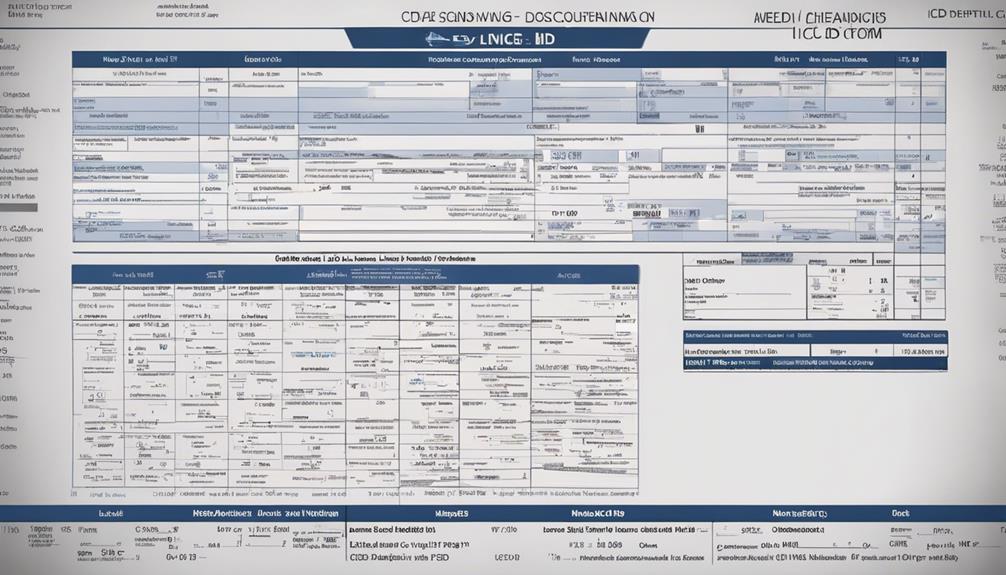
ICD codes play a crucial role in accurately documenting and billing for left hearing loss in medical records. Proper documentation using ICD-10-CM coding ensures precise representation of the patient's condition, aiding in insurance coverage approvals and reimbursement processes. The specific ICD codes for left hearing loss not only help in tracking and managing patients' auditory health but also facilitate effective communication among healthcare providers and insurance companies. By utilizing the correct ICD codes, healthcare providers can streamline the billing and documentation process, leading to improved patient care and administrative efficiency.
| ICD Codes for Left Hearing Loss | Description |
|---|---|
| H90.41 | Conductive hearing loss, left ear |
| H90.42 | Sensorineural hearing loss, left ear |
| H90.43 | Mixed hearing loss, left ear |
| H90.44 | Unspecified hearing loss, left ear |
| H90.49 | Other hearing loss, left ear |
Frequently Asked Questions
What Is the ICD for Left-Sided Hearing Loss?
The ICD-10-CM code for left-sided hearing loss is H91.92. It's crucial to accurately document laterality in coding to reflect the patient's condition.
Proper coding ensures precise diagnosis and treatment planning. Specific codes in ICD-10-CM guidelines differentiate various types of hearing loss based on laterality and characteristics.
Using the correct code for left hearing loss supports accurate healthcare reporting and billing, benefiting both patients and providers.
What Is the ICD Code for Hearing Loss?
The ICD-10-CM code for hearing loss is essential for accurate medical documentation and billing. Proper coding, like H91.92 for left-sided hearing loss, ensures precise record-keeping. This standardized system aids in classifying and communicating patient conditions.
Healthcare providers rely on ICD codes to maintain consistency in managing various health issues. Using specific codes, such as H91.92, helps healthcare professionals effectively track and treat cases of hearing loss.
What Is the ICD-10 Code for Restricted Hearing in the Left Ear?
Restricted hearing in the left ear is assigned ICD-10-CM code H91.92. For accurate coding, documentation precision is vital. Understanding exclusions and selecting the correct laterality are crucial.
Proper coding ensures accurate diagnosis and treatment. It aids healthcare providers in delivering targeted care. Our team prioritizes accuracy and efficiency to help providers navigate complex coding requirements seamlessly.
What Is the ICD-10 Code for Left Ear Sound?
We use the ICD-10 code H91.92 for left ear sound issues. It's crucial for accurately recording and coding this condition in medical records.
Correct use of ICD-10 codes ensures clear communication among healthcare providers and insurance companies. This specific code aids in tracking and managing patient conditions efficiently, leading to appropriate reimbursement and treatment planning.
Proper documentation is vital for delivering quality care and ensuring accurate billing processes.
Conclusion
In conclusion, accurate ICD coding for left hearing loss is crucial for effective healthcare management. By utilizing specific codes like H91.92 for Unspecified Hearing Loss, Left Ear, healthcare providers can classify and treat patients with precision.
Proper coding ensures proper documentation, insurance coverage, and tailored interventions for improved patient outcomes.
The role of ICD codes in billing and documentation can't be overstated, highlighting the importance of meticulous coding practices in the field of audiology.


